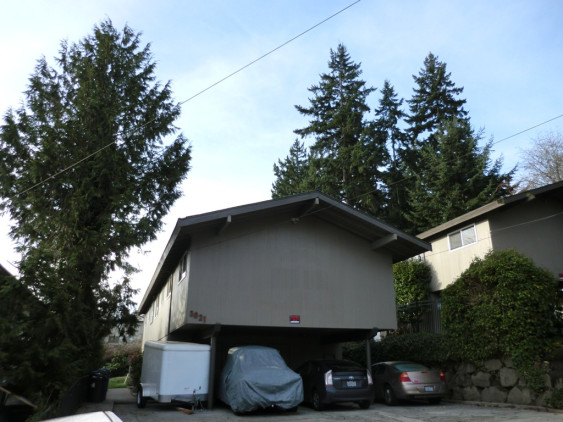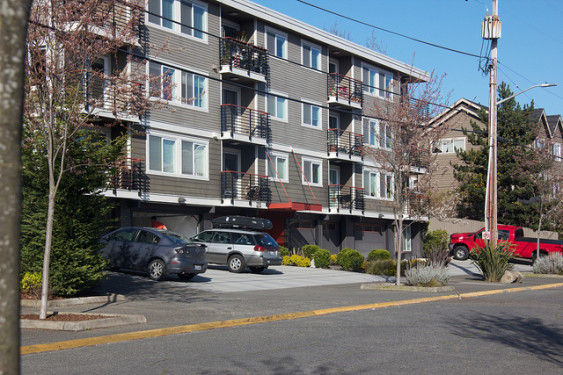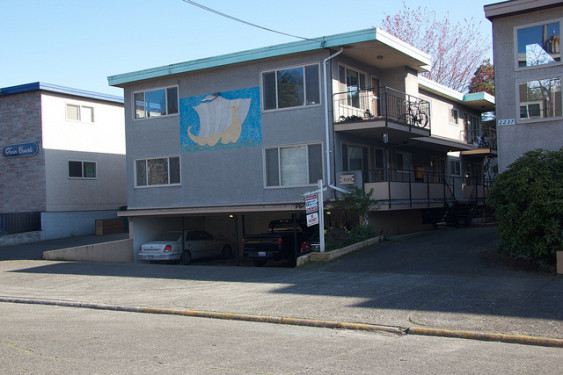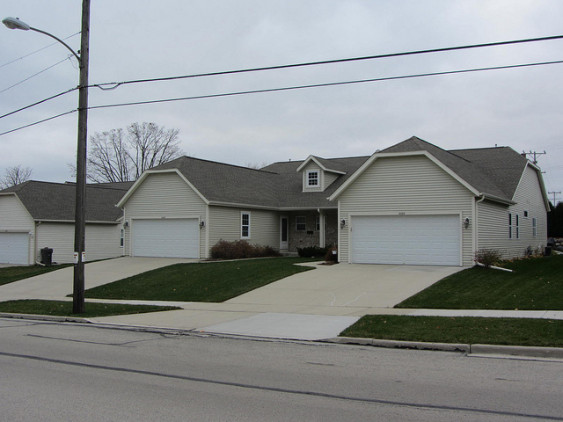We’re putting together a new series about the many ways that parking regulations and mandates can affect the way that cities look, work, and feel. But first we need your help! All too often, zoning codes force developers to cram a site with extra parking, leading to urban and suburban spaces that work for cars but not for human beings. Some of the results are downright eyesores—and we want to compile a photo essay with the most outrageous examples!
So please send us your photos of buildings—single-family houses, apartments, and commercial construction—where cars seem more important than the people inside. Don’t have a camera? You can also leave a comment below suggesting locations for us to look.
Need some examples?

Or how about this one?

Here’s another.

And one last example:

We’re looking for those unfortunate car-centric buildings—but not just houses, also apartment buildings, garages, and shopping centers—you name it—that result from cities’ parking requirements. There is probably a building (or many) in your community begging for our attention!
Send your submissions in to Serena Larkin, serena@sightline.org. You can also post them to Sightline’s Community Photopool at Flickr: https://secure.flickr.com/groups/sightlinecommunity/. Make sure to note the photo’s location in your caption as well as any photo credit you’d like us to include.


Comments are closed.